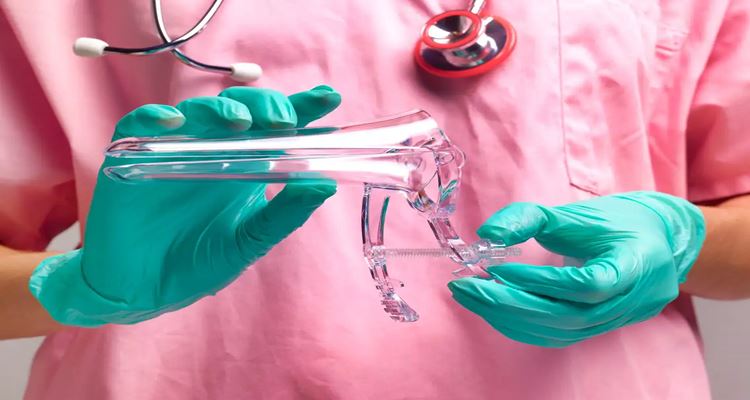Pap Smear Explained: A Simple Test for Early Cervical Cancer Detection
Share IT

Launch Your Dream Website with Us!
Click Here to Get in touch with Us.
Categories
Pap Smear
Your Protective Barrier Against Cervical Cancer: A Handbook for Exams
Testing for is essential for early detection of cervical cancer, which is a preventable disease. This blog post gives you information about Pap smears, including its goal, what it entails, the value of routine screening, and how it protects your health.
Thank you for reading this post, don't forget to subscribe!Table of Contents

A Pap Smear: What Is It?
Sometimes referred to as a Pap test, is a quick screening method that looks for abnormal cell alterations on the cervix, which is where the uterus opens up to the vagina. These aberrant cells may be precancerous, which means that if treatment is not received, they may progress to cervical cancer. The key to effectively preventing cervical cancer is early detection and intervention.
How Do They Perform a Pap Smear?
A speculum, a lubricated device, is gently inserted into the vagina by a medical expert to view the cervix during . Next, they’ll take a sample of cells from the cervix’s surface using a soft brush or spatula. After that, the sample is submitted to a lab to be examined under a microscope in order to detect any unusual cell changes.
Advantages of Routine Examination:
- Early Detection: Cervical precancerous cell alterations can be found by , which are very useful in identifying them before they become invasive malignancy. Early intervention and therapy are made possible by this, greatly raising the likelihood of effective management.
- Decreased Risk of Cervical Cancer: The incidence and death rate of cervical cancer have significantly decreased as a result of routine Pap smear screenings.
- Calm: Having regular screenings might help you feel in charge of your health and at ease.
Who Needs to Be Screened for Pap Smears?
For screening, the American College of Obstetricians and Gynaecologists (ACOG) suggests the following guidelines:
- Starting Age: Women should start screening for cervical cancer at age 21.
- Frequency: Pap smears can be performed every three years on women between the ages of 21 and 29.
- An Alternate Strategy (Ages 30-65): When a woman turns thirty, she has two choices:
- In tandem testing: Every five years, a Pap smear and an HPV test are recommended. HPV is the virus that causes the majority of cervical malignancies.
- Only Pap smears: Every three years.
- Age-Related Issues: It may not be necessary to do additional screening for women over 65 if they have a history of normal screenings and no risk factors. Discuss customised advice with your physician.
What to anticipate from a Pap smear:
The process is usually short and painless, however some women may have some minor cramping or discomfort.
Your healthcare provider is available to address any preferences or worries with you in advance.
After the surgery, it’s usual to have some minor vaginal bleeding or discharge, which should go away fast.
Following Your Pap Smear:
The findings of your will normally be sent to you in a few weeks.
A normal means that no unusual cell alterations were discovered.
In order to identify the type of abnormality and inform treatment choices, additional testing, such as a colposcopy or biopsy, may be suggested if the finds abnormal cells.
Taking Charge of Your Neck Well-being:
One essential weapon in the fight against cervical cancer is the test. Knowing the value of routine testing will enable you to take preventative measures to safeguard your health. To ensure your health in the future, talk about your personal risk factors with your doctor, make routine checkups a priority, and get Pap smears done on time.
Knowledge-Based Empowerment:
Most cases of cervical cancer are avoidable. You may take an active role in protecting your health by learning about Pap testing and the significance of routine screenings. Recall that early detection is essential. Speak with your physician immediately away to find out more about smears and to develop a screening schedule that works best for you.

Launch Your Dream Website with Us!
Click Here to Get in touch with Us.





























































Recent Comments